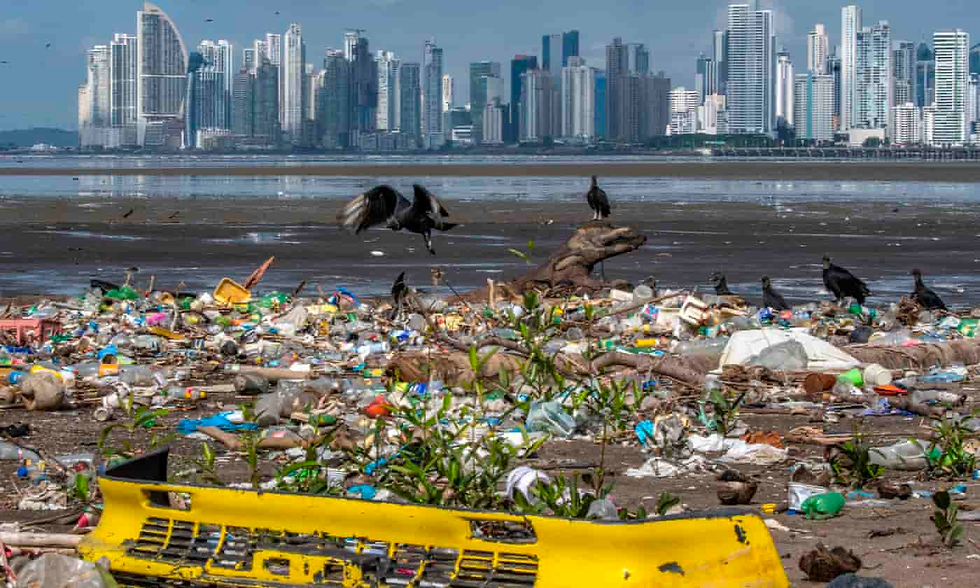'Current' Affairs
- Kevin Watson

- Mar 14, 2023
- 3 min read
This week's blog post is the start of a monthly update on recent news in the world of sustainability. In what is a fast paced sector, with an ever changing landscape, we'll look to raise awareness around what is going on in the world of sustainability.
Making Waves - The Great Bubble Barrier
First installed in an Amsterdam waterway in 2019, the Great Bubble Barrier have developed a technology that uses a bubble curtain to capture and recover plastic waste that has entered the waterways, with no impact to ship or fish passage.
The technology works by pumping air through a perforated tube that lies on the bottom of the waterway, which creates a small current that directs plastic waste toward an installed catchment system. The compressor supplying the air to the system can be powered using renewable energy.
What a fantastic initiative and given its success, a second unit was installed in 2022 in Katwijk, Netherlands, with plans to install systems in Portugal and Germany. For more information, visit https://thegreatbubblebarrier.com/.
Changing Tides - the Deposit Return Scheme in Scotland
The Scottish government have announced that the long awaited deposit return scheme will be going live on 16th August 2023, which will help increase the amount of waste materials that are routed to recycling centres, with a target of 90% collection rates by 2024. As part of this initiative, people will pay a 20p deposit when purchasing a drink that is made from PET plastic, steel, aluminium or glass, where the money will be repaid once the empty container is returned to a designated return point. Eligible items will carry a special barcode that will be detected at the designated return points.

Estimates suggest the new scheme will cut the number of plastic bottles that end up as litter by 34,000 every day, with an extra 76,000 tonnes being recycled annually, as well as around 4M tonnes of climate-warming carbon emissions being cut over a 25-year period.
Despite the positive movement, there has been concerns around the introduction of the scheme. One in particular is that producers will have to pay 2.4 months of deposits and producer fees upfront before the start of the scheme as well as a registration fee. This may have an impact on the number of small producers supplying the Scottish market going forward, with firms unable to afford the additional costs.
Whilst the desire to ensure that products are recycled is admirable, there are significant concerns around the actual ability to recycle such a large amount of waste. Previously reported back in 2020 by Martin Williams of the Herald, "Scotland is having to export nearly all its throwaway plastic waste as a 'staggering' 1.7 million tonnes of rubbish are exported to other countries to be dealt with".
That being said, the Scottish governments recycling improvement fund is designed to improve the recycling infrastructure across Scotland, in an effort to progress towards Scotland's ambitious targets. More information can be found on the Recycling Improvement Fund at Zero Waste Scotland.
It is also debated that the new Deposit Return Scheme will interfere with some of Scotland's most successful commercial recycling schemes. There are challenges that glass should not form part of the scheme, given that 95% of commercial glass is already recycled - demonstrating that a well established circular network already is in place. 60-70% of domestic glass and 95% of commercial glass is recycled. Whether or not local councils look to change recycling collections based on the proposed changes is still to be determined, but could be a complete change to the current recycling structure.
What are your thoughts? Do you think the Deposit Return Scheme is a good idea? Let us know if the comments section.
Against the Tide:
The Guardian reported last week that a recent study conducted by the 5 Gyres Institute has calculated that more than 170 tonnes of micro plastic particles are currently in our oceans. This report highlights that clean up efforts will become insignificant if they continue to enter our oceans and waterways at the same rate.

Since 2005, there has been a rapid increase in the amount of ocean plastic, which coincides with an exponential increase in plastic production. Without immediate global action, the amount of ocean plastic is anticipated to increase 2.6-fold from 2016 to 2040.
UN member states are meeting in spring this year to discuss policies around plastic pollution and hopefully can help tackle this problem with tighter and more measurable targets and greater corporate responsibility. It is suggested that the current range of international policies are fragmented and lack specifics.
References:
[3] https://www.thegreatbubblebarrier.com/







Comments